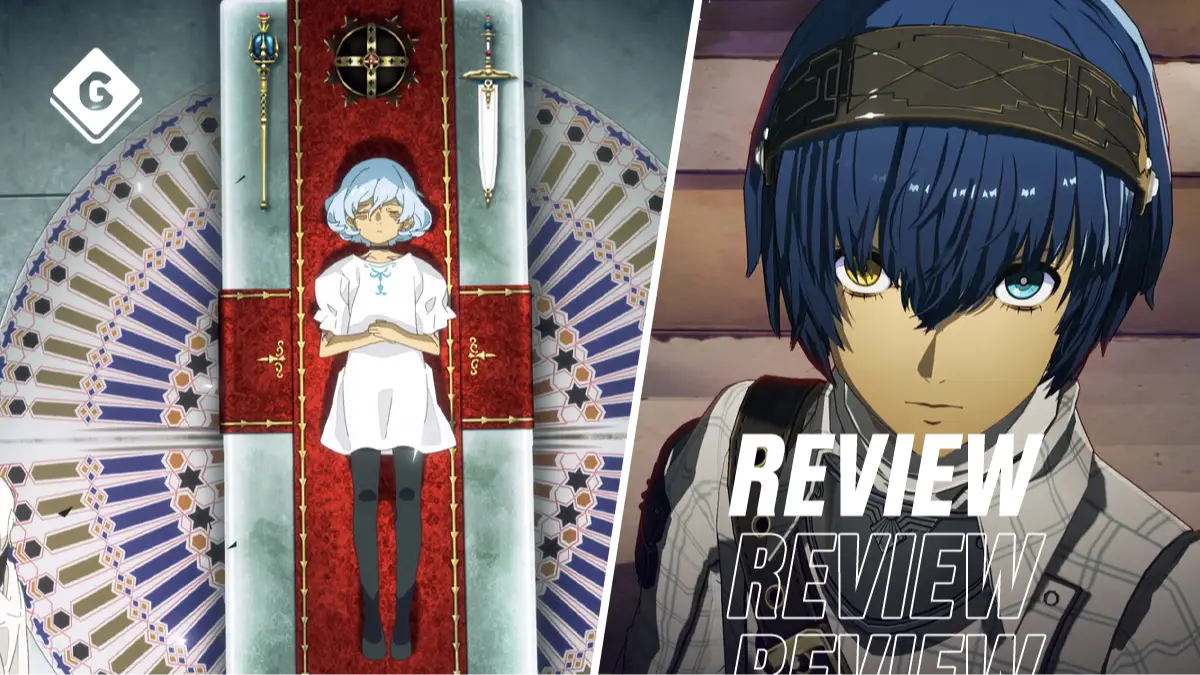
It feels somewhat redundant to tell you that the latest RPG from Atlus is quite special. The company has worked hard at establishing itself in the upper echelon of the genre, going from one franchise to another, always delivering something truly outstanding. How, then, do they meet the quality of something as marvellous as Persona 5? Or as daring and deep as Shin Megami Tensei V?
The answer is by starting something new, I suppose. Enter the preposterously named Metaphor ReFantazio, a game that eschews modern society in favour of traditional fantasy, to some degree, anyway. This is a land of magic and kings, religion, and unrest, a far cry from the teenage angst of Persona and the world-shattering events of Gods and Demons from SMT. If I had to sum up Metaphor (let’s forget the other bit for the sake of brevity) in simple terms I’d say it’s Persona 5 mixed with Final Fantasy IX. There’s plenty of Western fantasy here in our protagonist’s journey to be crowned king after the preceding royal is murdered in his bed. You’ll see many parallels between recent fantasy successes across gaming, TV, film, and literature, but it comes with a healthy dose of what makes Atlus games stand out - plucky characters, dark themes, bombastic set pieces, and plots filled with surreal and weird moments.
So, how does this all start? Our protagonist and hero is off to the royal capital of Grand Trad to tell an informant that the prince of the kingdom, once thought dead, is safe. However, the wretch who placed the curse upon the young prince has just dispatched the king and is intent on warming the throne themselves.
Suddenly, in true Atlus style, something weird happens - the royal palace rises in the air, attached to a huge chunk of rock and the populace is staring up at the dead king’s face made from the very ground.
Advert
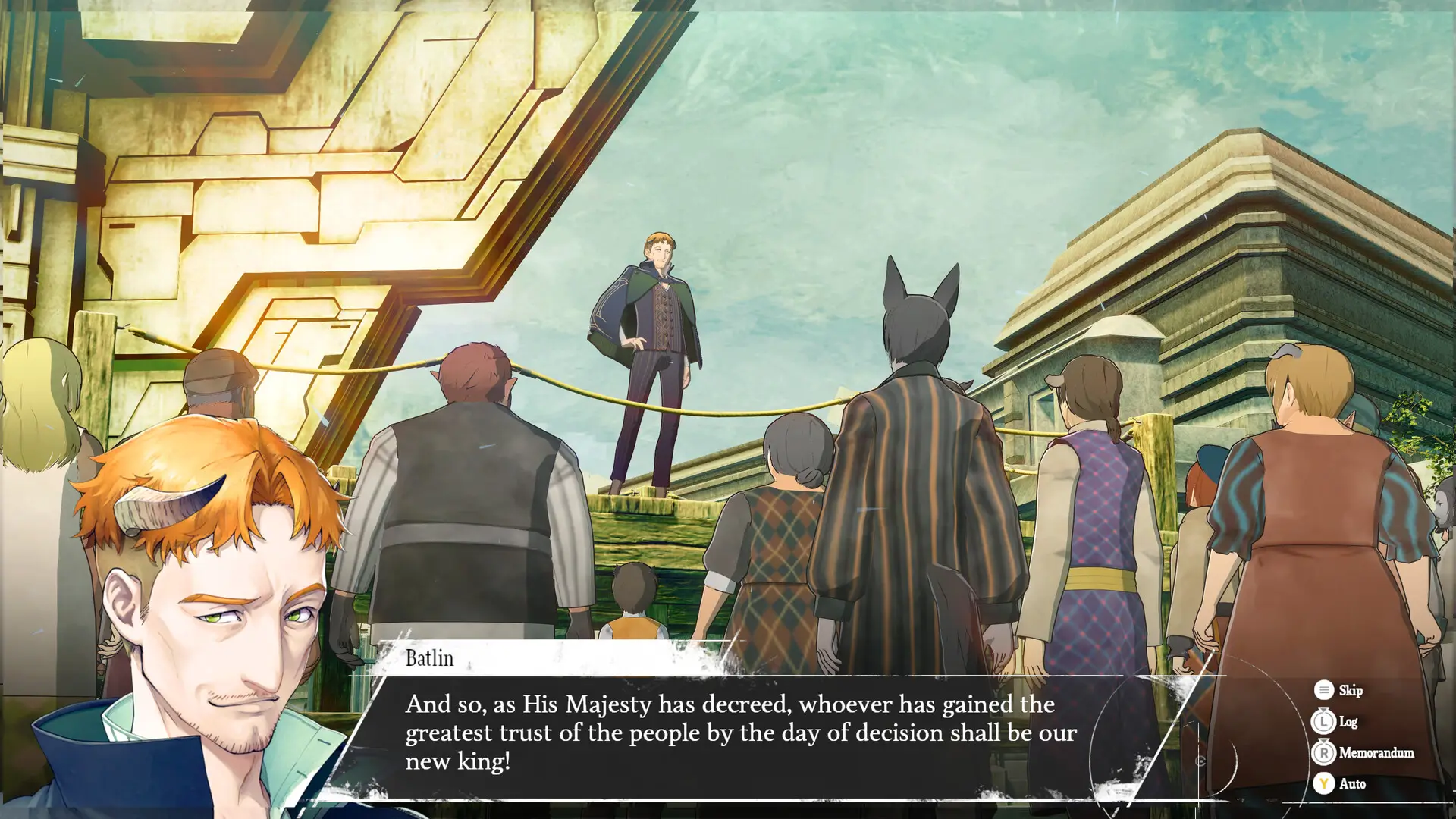
Using the last vestiges of his ‘royal magic’ he proclaims that a tournament of sorts will begin and whoever has the most public support by a set date will be crowned king. Thus beginning the journey of collecting supporters who will join your party, some who will watch from the sidelines, and a story that traverses the mundane to the downright bizarre.
Of course, I won’t get too far into the details for fear of spoilers, but also because if you’ve played any of Atlus’ recent output, you’re going to play Metaphor no matter what the outcome of this review. As a huge fan of Persona and Shin Megami Tensei, it was apparent from the first few hours that I was going to enjoy, nay, love this game. And I do.
It has all the hallmarks of an Atlus game - social links, an ongoing passing of time, dungeons to explore, monsters to battle, and some truly epic storytelling. There are some niggling issues that hold it back slightly, but we’ll get to those, and in the grand scheme of things, they’re pretty negligible.
Instead of me waffling on for thousands of words telling you the myriad ways the battle system performs, or explaining every intricate detail of how the supporter system works, I’ll tell you what I loved about Metaphor, which is still quite a lot.
I wouldn’t forgive myself if I didn’t start out with the cast you’ll meet along the way. There are several members, and they each come from a different part of the kingdom, bringing a host of personal problems with them.
Metaphor, much like Persona 5, deals with some very topical, and often dark, themes. Each supporter and party member, who you’ll grow close to over the 70-90 hours runtime represents a problem in life. It might be a lack of confidence in leading people, or feeling like an outcast as a child. Strohl, who you meet early on, carries the weight of his family’s legacy on his shoulders, Gallica, your fairy companion, worries about her place in the world and whether she’s a good enough person.
Of course, you’ll slowly help them all and learn what makes them tick, but it’ll never be a light experience. We’re dealing mostly with themes of grief, racism, classism, and mental health topics like anxiety and depression.
Atlus, as ever, handles these well. Better than that, in fact. With flair, grace, and kindness. My favourite character, Heismay, is a bereaved parent, much like myself. I warmed to him right away and his dialogue, his story, his emotional beats, are all true to someone who has lost a child. The handling of such a topic could have been clumsy, but it’s written with every feeling I’ve felt myself, from anger to sadness to confusion.
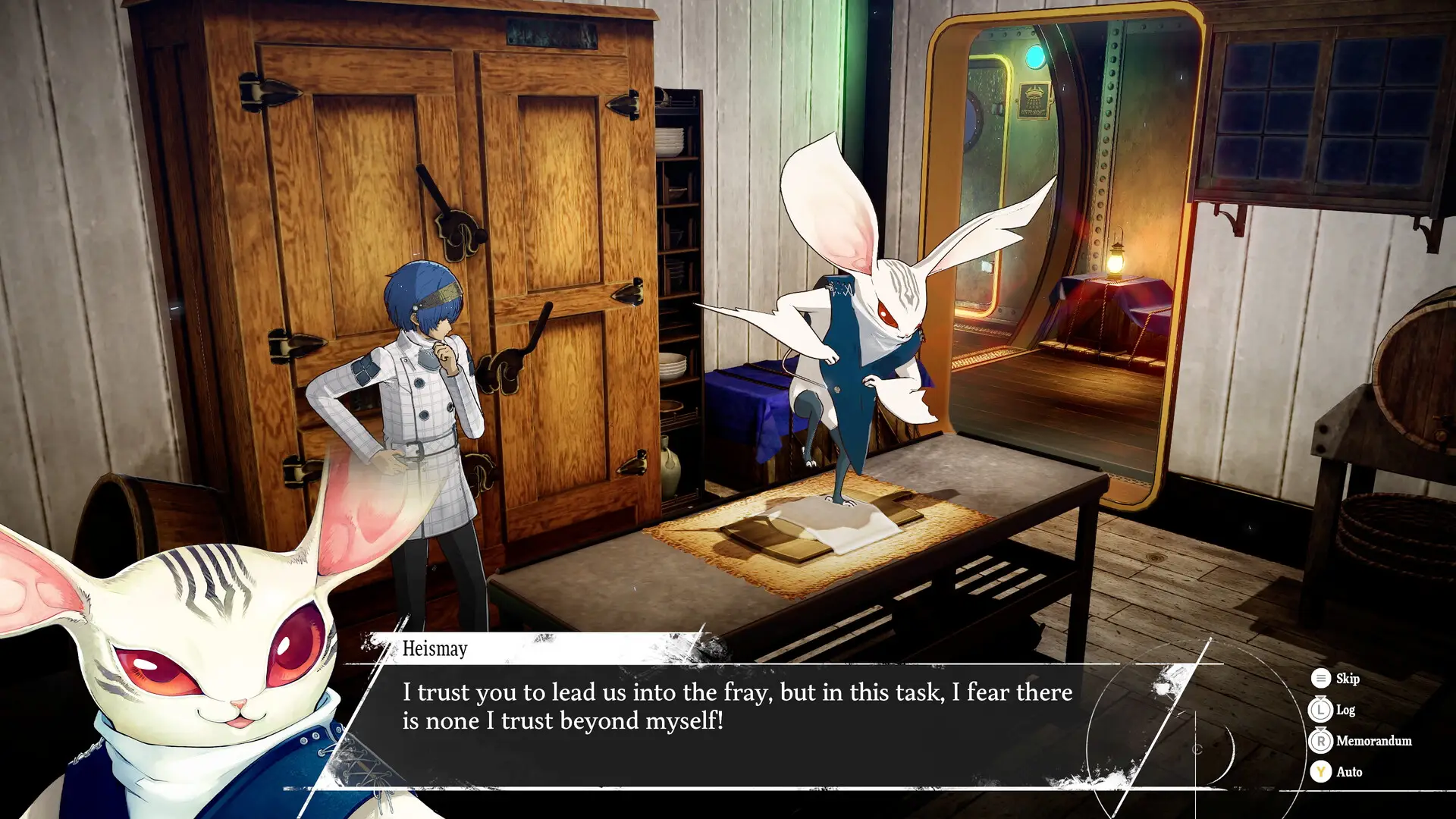
This exists throughout. Whether you’re watching as certain races in the kingdom are downtrodden because they look different, or whether a homeless person is swept out of sight for fear of ‘dirtying’ the royal capital, the subject is always large and it’s told in small details. And the friends you make will come up against these issues, bringing them to the would-be king’s feet. It’s an intriguing way to tell a traditional RPG story, or fairy tale. Instead of just seeing the big picture of beating the bad guy and saving the world, you see why the world needs saving, all the way down to the little guy.
That’s not to say that Metaphor isn’t without its grandiose moments. It’s pure theatre at points with long monologues about the corruption of power sandwiched in between heists, stolen identities, a fictional novel that whisks us off to a mystical place, and a maniacal despot who wants to see the world burn.
Thankfully, your party gets to wield a mysterious form of magic that kits them out in machine-like creations called Archetypes. Essentially, these are the different classes for our heroes to use when fighting and they range from the usual mage, warrior, and thief, to more unusual and interesting roles like faker, brawler, or merchant.
Each of these comes with a set list of abilities, some passive and some active. For example, a mage will wield elemental spells and spend MP, whereas the brawler has heavy-hitting melee attacks that cost HP. The merchant will opt for attacks that cost the game’s currency of Reeves, as if throwing coins at the enemy.
Each of these archetypes is levelled up with XP from battles or items and can reach level 20 before allowing you to choose new forms of the archetype, which are unlocked through conversations with supporters. Thief goes through three stages reaching its ultimate form of assassin, while the knight has stage two of a magical knight, before getting to the ultimate forms of dark knight or paladin.
The beauty of this system comes from being able to, at any point, spend a currency called MAG to bestow the archetype on any character you choose. Doing so, and taking advantage of archetype lineage, allows you to mix and match the best attacks and abilities from various roles to form a class suited to your gameplay style.
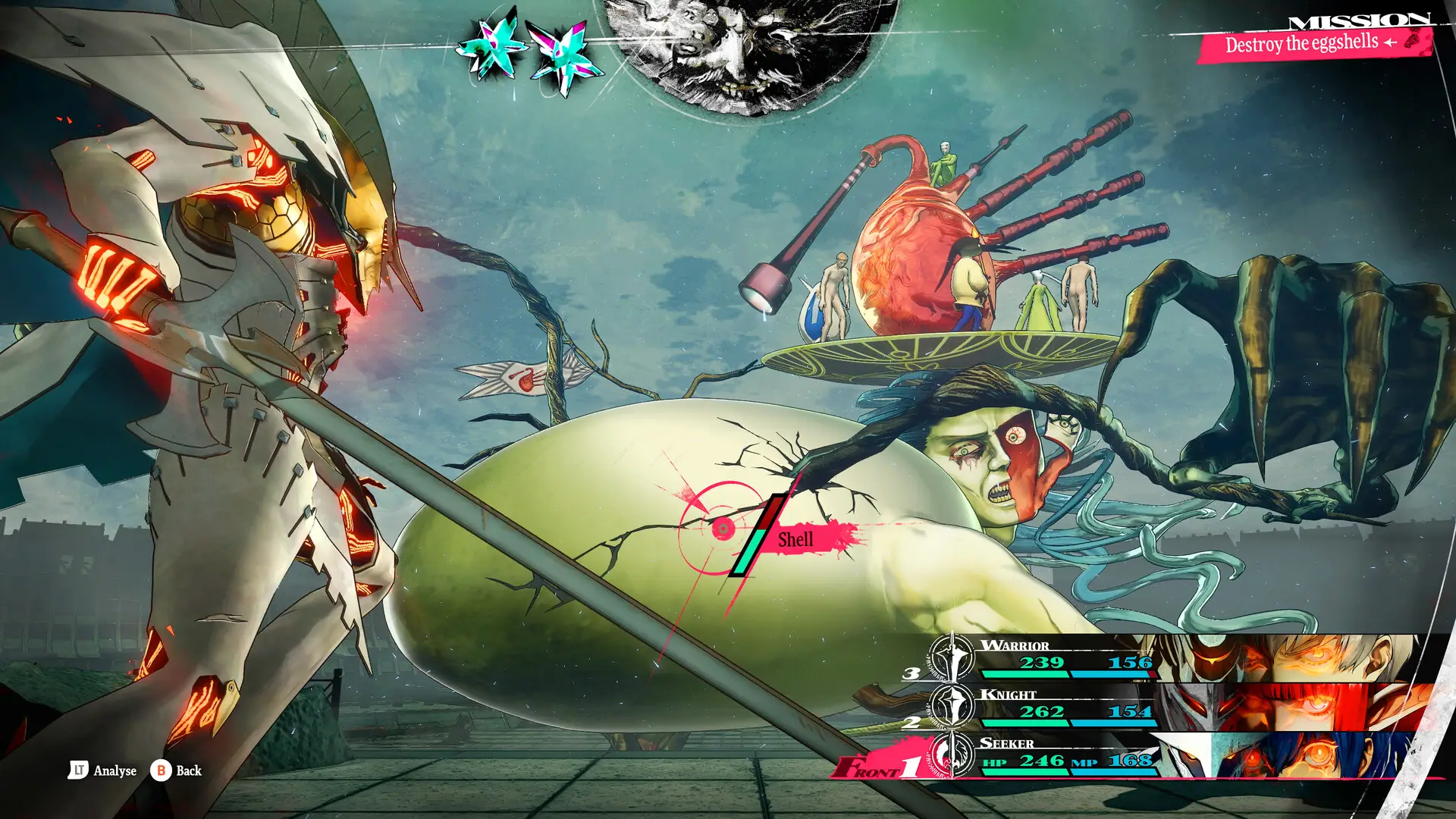
By the end of my playthrough, I had levelled up nearly every archetype and applied them to all of my party so each character would pull abilities from several different archetypes to make for more aggressive play. It feels like something an MMORPG would do and it felt unique in that the characters appeared more personalised.
This also emphasised working with your supporters to discover new archetypes, of which there are many. Some come from those in your party, others come from enigmatic people you meet throughout the world.
Now we reach a bit of a bugbear for me. Metaphor isn’t an open-world game, but you do travel from place to place via a vehicle called a gauntlet runner. It takes a set number of days to travel from point A to point B and the in-game calendar rolls forward. It’s a fine way to keep you on track, but at times it feels a little too restrictive and archaic.
Oftentimes I found myself wanting to hand in a quest only to have the game usher me away from a city for days leaving me unable to receive my reward of money or experience in one of five royal virtues - which is a mechanic that feels a little pointless as it only really furthers your social options later in the game, but that’s not a major complaint.
Something I will complain about, however, is the sound design. I opted for English voices as usually they are stellar, and while some of the British accents were a bit wobbly, it was a great performance all around. But background voices from NPCs are often repeated over and over again to the point of annoyance.
For example, standing in a tavern an NPC kept saying “This place has gone to shite.” That’s all they said and it was repeated every few seconds. This happens everywhere and it made me want to mute the game. There is also much less variety in the music compared to other games from Atlus leaving the soundtrack feeling a touch repetitive, especially in dungeons.
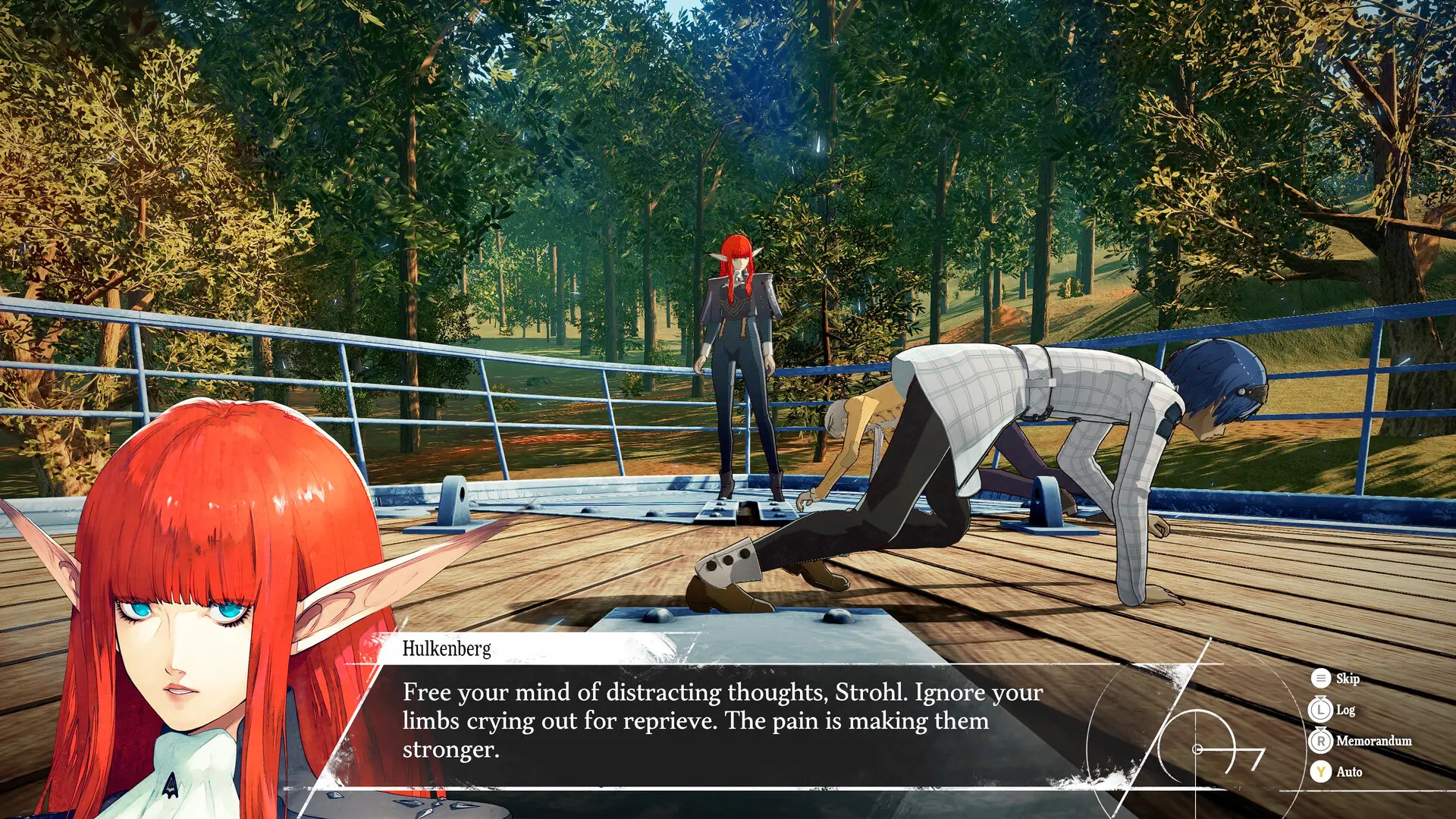
My only other complaint comes with the final boss of the game. Of course, I won’t talk about it in depth but I will say it does the trick of becoming so ridiculously overpowered that it verged on maddening. Combat otherwise is wonderful, I enjoyed every other fight in the game, but they saved the most obnoxious fight for the crescendo of the game, leaving a slightly sour taste in my mouth.
Behind everything, lying underneath the story and the mechanics, is a very intriguing angle for Metaphor, and one that has ramifications for all of Atlus’ games. It’s something that will likely be spoken about on forums and message boards - a clever angle that, were I to spoil it, I’d be forever shamed, but it’s something that caused a level of excitement in me that still lingers and couldn’t be left unmentioned.
If you’ve already scrolled to the end of this review, you’ll have seen the score I’ve given and know that I did love this game, so let’s get back to what I really enjoyed - the drama of it all. I’m an absolute sucker for a fairy tale, particularly one that plays with age-old concepts. Metaphor feels like a fairy tale wrapped inside a fable with a dash of meta-commentary here and there.
It has all the hallmarks you’ll want; it’s good vs evil, it’s proper heroes and villains, and yet it plays with grander ideas constantly.
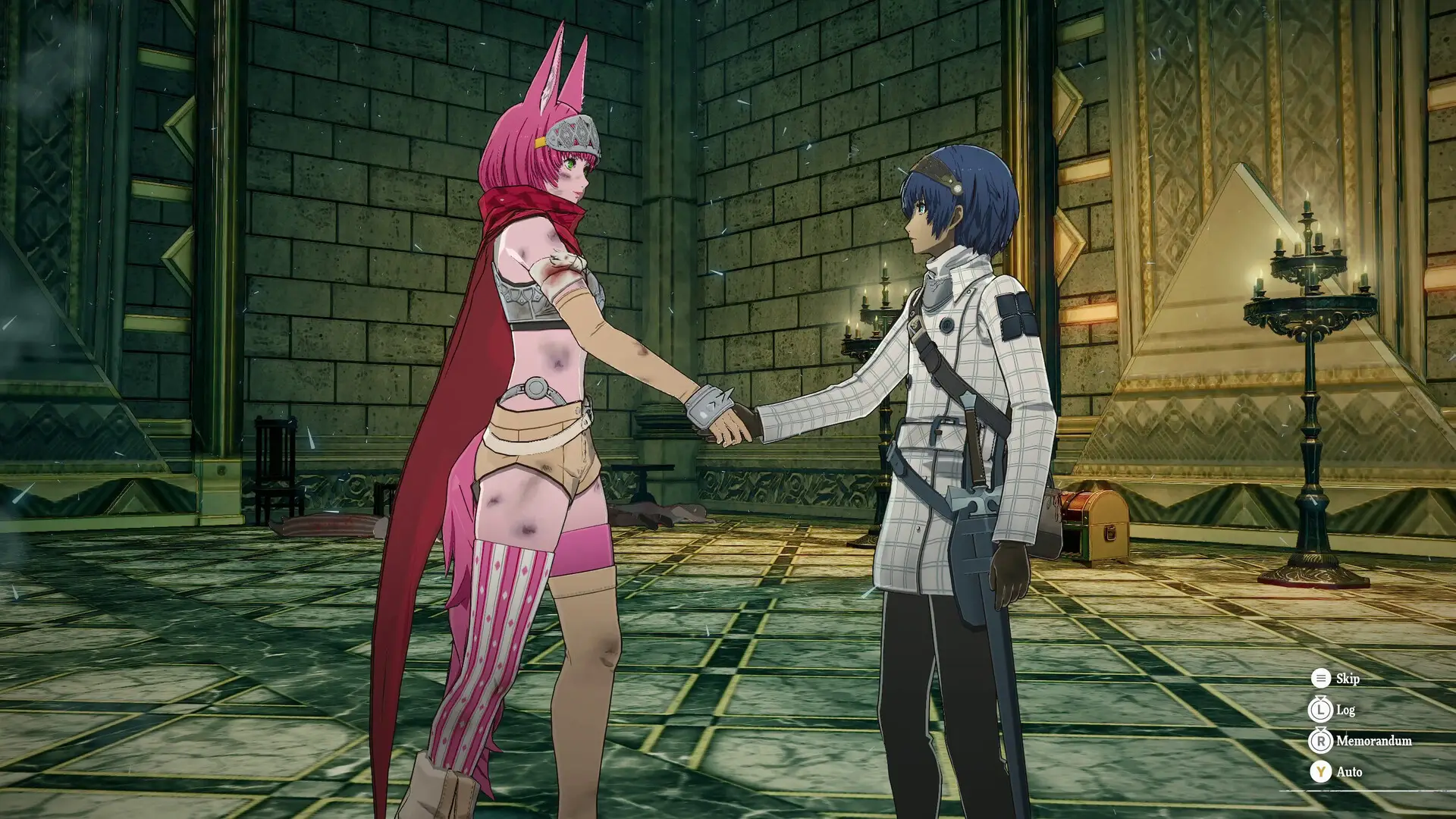
As mentioned previously, it deals with classism, racism, or religious control of the populace in very blatant ways. Ways that shock at first when someone is referring to another race in such abhorrent terms. The core focus is the idea of utopias and whether it’s ever truly possible to create one, because so many products of entertainment deal with the fight up to the happy ending, Metaphor consistently wonders (and fears) what would come next - after a hero saves the day.
Above all, Metaphor examines what it is to be human in a world filled with war, xenophobia, and an imbalance of societal wealth. Yes, it has castles, fairies, dragons, and the most unique approach to magic I’ve seen outside of literature, but Atlus doesn’t stray from a story built on modern ideas, which is what we’ve come to expect from them.
Metaphor ReFantazio is another truly amazing game from a developer who rarely put a foot wrong. Everything from the recognisable mechanics to the broad variety of themes marks this experience as one I’ll remember for years to come. While it doesn’t reach the heights of Persona 5, it’s certainly biting at its heels and becomes a brilliant entry in an already staggering lineup of video games.
Pros: Gorgeous, stellar story, superb characters, unique mechanics and features
Cons: Minor pacing issues, spotty sound design
For fans of: Persona 5, Shin Megami Tensei, Final Fantasy
9/10: Exceptional
Metaphor ReFantazio is available 11 October for Xbox Series S|X (version tested), PlayStation 5, PlayStation 4, and PC. A review code was provided by the publisher. Read a guide to our review scores here.
